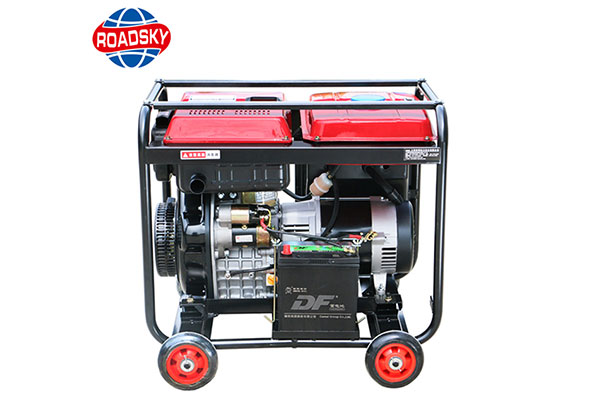How Long Can a Diesel Generator Run Continuously? 6 Factors
Diesel generators are renowned for their robustness and reliability, making them a popular choice for backup power solutions in various settings. Whether you’re considering a diesel generator for emergency backup power or for continuous operation in remote locations, one critical question comes to mind: How long can a diesel generator run continuously? In this article, RoadSky will delve into the factors that affect the continuous operation of a diesel generator and provide insights to help you understand its capabilities.

1. Fuel Efficiency and Tank Capacity
The fuel efficiency of a diesel generator plays a pivotal role in determining its continuous runtime. Diesel generators typically consume less fuel compared to their gasoline counterparts, making them more efficient. The tank capacity of the generator also affects its runtime. Larger fuel tanks allow for longer periods of continuous operation without the need for refueling. However, it’s important to note that a generator should not be operated at its maximum continuous rating for extended periods, as it can lead to excessive fuel consumption and potential engine strain.
2. Generator Load
The load placed on a diesel generator significantly impacts its continuous runtime. The generator’s load refers to the amount of electrical power being drawn from it. Running a generator at a lower load allows for longer continuous operation. Conversely, operating the generator at or near its maximum capacity will result in shorter runtime. It’s advisable to calculate and optimize the load requirements to ensure efficient and prolonged generator operation.
3. Ambient Conditions
The ambient conditions in which a diesel generator operates can affect its runtime. Temperature, humidity, and altitude all play a part in the generator’s performance. Diesel generators are typically designed to operate within specific temperature ranges. Extreme temperatures, whether excessively high or low, can impact the engine’s efficiency, potentially reducing the continuous runtime. Additionally, high humidity levels or operating at high altitudes can affect the generator’s combustion process, leading to decreased efficiency and runtime.
4. Maintenance and Service
Proper maintenance and regular servicing are essential for maximizing the continuous runtime of a diesel generator. Routine maintenance tasks, such as oil and filter changes, fuel system checks, and cooling system inspections, help ensure optimal performance. Neglecting maintenance can lead to decreased efficiency, increased fuel consumption, and potentially premature engine failure. Regular servicing by qualified professionals can identify and address issues before they become major problems, thus extending the generator’s continuous runtime.
5. Generator Rating and Quality
The rating and quality of a diesel generator are critical factors to consider when assessing its continuous runtime. Generators are typically rated based on their maximum continuous power output. Investing in a high-quality generator with a higher rating can provide a longer continuous runtime. Reliable manufacturers often design their generators to withstand extended periods of operation, offering better efficiency and durability.
6. Backup Power Management
Implementing an effective backup power management system can help optimize the continuous runtime of a diesel generator. Prioritizing power usage, employing energy-efficient equipment, and utilizing automatic transfer switches can help manage and reduce the load on the generator. This, in turn, extends the runtime and ensures essential equipment and systems receive power during extended outages.
Conclusion
The continuous runtime of a diesel generator depends on various factors, including fuel efficiency, load, ambient conditions, maintenance, generator rating, and backup power management. By considering these factors and implementing best practices, you can maximize the runtime of your diesel generator. If you are looking for diesel generators, you can contact RoadSky for more information.

